If you've looked closely at many silver maple trees, you know why they call them "silver" - their bark is a silver color. And you've also probably noticed that the bark is shaggy and covers the entire trunk of the tree. White canker makes this description less true now. One characteristic of white canker is that it eats away at the inner bark, the phloem, and prevents the creation of new outer bark. Furthermore, chemicals that protect the outer bark from decomposition are also not produced. So, as a tree grows, the old bark decays away, and instead of new bark you get a poor substitute. In addition, the loss of chemical decay resistance means lichens are more likely to colonize the bark.
The previous posting mentioned this bark issue. This posting will show you some examples of it. Here's the first example:
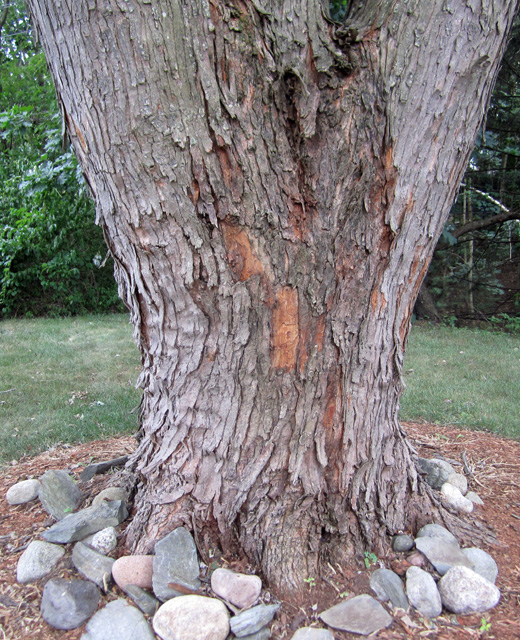
To see a full-resolution version of this photo, click on
www.whitecanker.net/pictures/2010-07-25 Silver maple-1 bark.jpg(Left click to zoom in to a point, right click to save the picture to your PC or to print it.)
The first time you notice this, you will probably think somone has peeled the bark away. But then, as you more carefully examine these bare spots, you'll see that the underlying bark doesn't look healthy at all.
Here's another silver maple with the same problem:
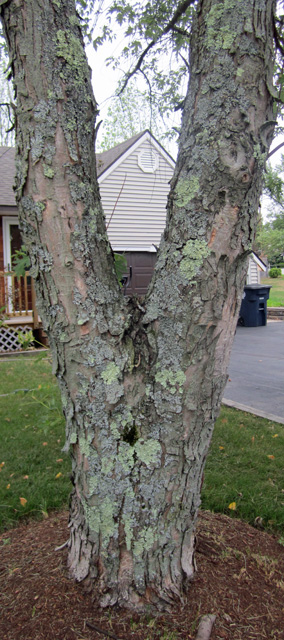
To see a full-resolution version of this photo, click on
www.whitecanker.net/pictures/2010-07-25 Silver maple-2 bark.jpg(Left click to zoom in to a point, right click to save the picture to your PC or to print it.)
As you look at the remaining bark, you can see that it is losing its silver color, and instead turning black. The areas where the bark has fallen away often take on a light brown, or "peanut butter" color.
This silver maple hasn't lost too much bark yet, but it's getting there.
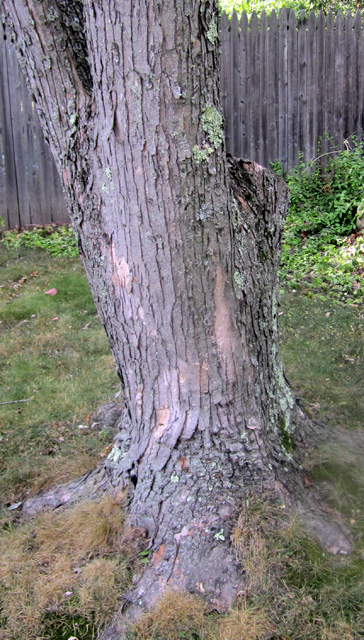
To see a full-resolution version of this photo, click on
www.whitecanker.net/pictures/2010-07-31 Sick Silver Maple - 19 Briand.jpg(Left click to zoom in to a point, right click to save the picture to your PC or to print it.)
This silver maple has lost more bark, and the lower area of bark loss even looks a bit rotten.
In fact, if you look closely, the upper-left part of the trunk shows some signs of bleeding.
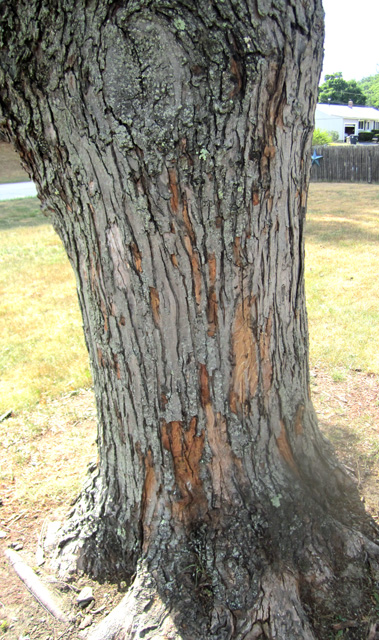
To see a full-resolution version of this photo, click on
www.whitecanker.net/pictures/2010-07-31 Sick Silver Maple - 25 Briand.jpg(Left click to zoom in to a point, right click to save the picture to your PC or to print it.)
This large silver maple has lost quite a bit of bark from its lower trunk. The bark loss has gotten progressively worse the past few years.
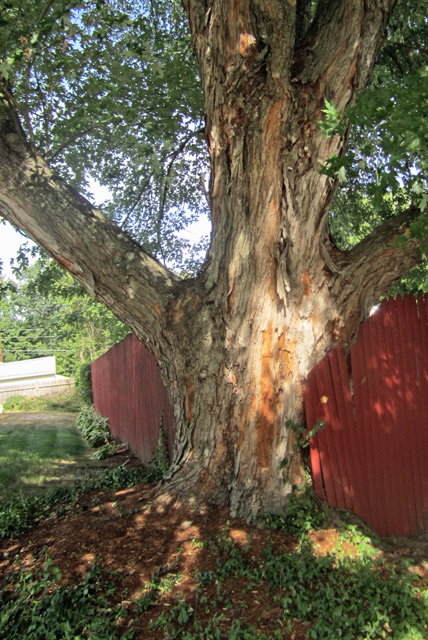
To see a full-resolution version of this photo, click on
www.whitecanker.net/pictures/2010-07-31 Silver maple - 6 Sanborn.jpg(Left click to zoom in to a point, right click to save the picture to your PC or to print it.)
So, over time, people may begin to wonder why these trees are called "silver" maples!


